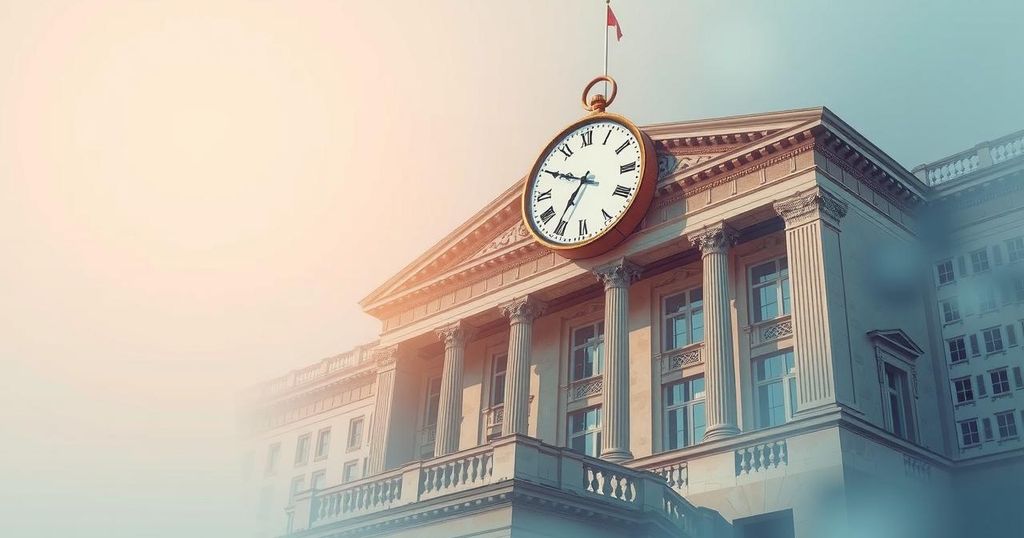Cameroon Elections: The Viability of Biya’s Continued Leadership
Cameroon approaches elections with President Paul Biya likely running for an unprecedented eighth term at age 91, raising questions about his fitness for office. Despite health concerns and significant opposition, internal political dynamics suggest little chance for change. Economic issues persist amid civil unrest, complicating governance and leaving many doubtful of viable alternatives.
As Cameroon prepares for upcoming elections, 91-year-old President Paul Biya is expected to run for an eighth consecutive term, potentially extending his 42-year rule. Political commentator Dr. John Akpo asserts that there is little doubt regarding Biya’s candidacy, despite concerns surrounding his health. Meanwhile, Elvis Ngolle Ngolle from Biya’s CPDM party maintains that discussions about a successor are premature, as the party focuses on the upcoming elections.
Biya, who has held power for over four decades, would be 99 by the next elections if re-elected. While some opposition groups support his candidacy, Akpo questions their authenticity, referring to them as satellite parties created to undermine genuine opposition. He criticized this political manipulation, expressing the discontent among many Cameroonians regarding the current situation.
Although Biya is credited with establishing a multi-party democracy and fostering international ties, his leadership is marred by ongoing civil unrest in Anglophone regions. Tamfu Richard, an opposition lawyer, suggests that Biya’s age has limited his capacity to address these issues effectively, citing his inability to engage directly with the conflict areas.
Critics argue that Biya’s regime has resorted to suppressing dissent rather than encouraging dialogue, resulting in the imprisonment of peaceful protesters such as Maurice Kamto. Support from coalition partners is crucial for the ruling CPDM to maintain parliamentary control, but the popularity of these partners has diminished, complicating the political landscape.
Recent statements from Catholic bishops during a seminar indicated they are seeking improvements in living conditions for citizens without directly calling for Biya’s resignation. Although some bishops expressed political concerns, Diocesan spokesperson Solomon Lyonga emphasized that their remarks were aimed at constructive governance rather than antagonism towards the government.
Despite a slight economic recovery, challenges remain, including high inflation, fiscal difficulties, and ongoing internal conflicts. Improvements in GDP growth in early 2024 have not alleviated issues of poverty, with a significant portion of the population living below the extreme poverty line.
Cameroon’s lack of viable alternatives to Biya, stemming from a fragmented opposition, complicates the nation’s political future. Opposition supporter Michele Ndoki pointed out that popular sentiment may favor the status quo, raising questions about Biya’s ability to govern effectively as he ages, while the opposition continues to assert their position against his presidency.
The context of Cameroon’s political landscape revolves around the prolonged leadership of President Paul Biya, who has maintained his presidency since 1982. With a series of civil unrest and accusations of human rights violations against his administration, there are rising concerns regarding the effectiveness of his governance as his health declines. The state of the economy and the fragmented opposition further complicate the political environment as the nation approaches another election cycle.
In summary, President Paul Biya’s potential candidacy raises critical questions about his ability to lead effectively at the age of 91. Amidst political opposition, economic challenges, and societal unrest, many Cameroonians express concern over the future of governance. The fragmentation of opposition parties and external support further complicate the prospect for meaningful change in the nation’s leadership, reinforcing the significance of Biya’s decisions moving forward.
Original Source: www.dw.com




Post Comment